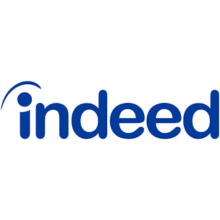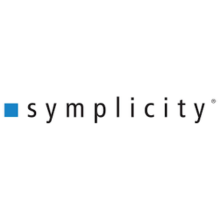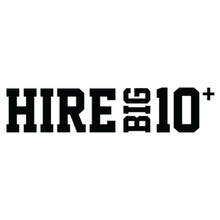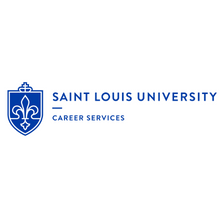- Home
- About
- Membership
- Events
- Awards & Honors
- Career Opportunities
- Member Resources
Wednesday, July 26 Break-Out Sessions10:00 a.m. - 11:00 a.m. Break-Out Session Tracks: College Employer Both, College and Employer Break-Out Session Levels: Level 1: New Professionals (less than 5 years) Level 2: Mid-Career Professionals (5-10 years) Level 3: Directors (10+ years) Level 4: All levels will benefit Transformational Office Advances: Track: Both Level: 2&3 Presenter:
We all know strategic planning is important. However, we have all seen the glazed-over look on peoples faces when we start talking about our next strategic planning session. It does not have to be like that. Using S.W.O.T. Analysis as is it is intended, in partnership with the T.O.W.S. Matrix, we execute office advances which empower people to create actionable outcomes with meaning. The deliverable is a prioritized action list in alignment with funding models, as well as university, division, and unit mission. More important, this process engages all team members, and creates empowerment, assessment, accountability, and fun (our department culture construct). This model has been used in industry, not-for-profits, and higher education to create high functioning teams, meaningful outcomes, and lasting organization culture. Gain applicable information about this model for office advances which engages all team members, and creates empowerment, assessment, accountability, and fun. Using SWOT, TOWS, project lists, and other specific processes, create office advances where the team creates the initiatives they are interested in, and outcomes which are meaningful and useful. We will replicate for you our two-day process during this session. A Business Case for Equity & Inclusion Track: Both Level: 2-4 Presenters:
Learn how one company has over 175 local diversity teams throughout North America and Europe that help them to identify and address the unique diversity and Inclusion opportunities in each marketplace. This helps the company reach its diversity and inclusion mission of mirroring the communities that they service. Learn about how their approach to diversity ensures long¬ term business success. Revitalizing Networking Opportunities by Reconnecting Diverse Communities on Campus Track: Both Level: 4 Presenters:
The University of Illinois at Urbana-Champaign has been able to cultivate an atmosphere that embraces diversity and inclusion through work with several different cultural houses including: La Casa Cultural Latina, Asian American Cultural Center, LGBT Resource Center, Women’s Resource Center, and the Bruce Nesbitt African American Cultural Center. In order to further strengthen this sense of community among students and to help with career development, The Career Center at Illinois developed programs with the cultural houses to engage students in career development events to help students become career ready. As a result, we saw an opportunity to be innovative by creating D.I.N.E. (Diversity & Inclusion Networking Exchange) and Conexiones. These events were developed to offer students a safe space to gain knowledge about diversity and inclusion in the workplace and gain insight into certain companies and industries through small group discussions with representatives from different companies and organizations. For each event, four learning outcomes were developed to assess career readiness which include feeling comfortable initiating conversations with professionals, understanding the value of networking, understanding the qualities that employers seek, and feeling comfortable asking professionals’ questions regarding their organization’s diversity and inclusion practices. In the second year of these programs statistically significant findings were revealed in three of the four learning outcomes. Through assessment of programs we are able to measure the increases in self-efficacy and gain valuable insights through qualitative responses, “with this event I truly have been touched and have seen that as a Latina in the workforce I can succeed!” Productivity with Purpose: Track: College Level: 4 Presenter:
Driven to revitalize their process for executing marketing projects and event programming, a career center serving a university population of 43,000 students, capitalized on free technologies to develop project management systems that renewed their ability to efficiently collaborate and delegate. Like many career development professionals, the Assistant Director for Employer Relations and Marketing with the Career and Leadership Development Center (CLDC) at Ohio University managed multiple responsibilities, including career and leadership coaching, marketing, event planning and employer relations. This juggling act made it necessary to tap into the resource of graduate assistants, student interns and paraprofessionals to execute and track the progress of marketing and events projects. Through the use of project management systems, the CLDC saw increased productivity, eventually expanding from three annual events to twelve and executing over 50 annual marketing campaigns, while maintaining high quality event and marketing experiences. Through this presentation, attendees will experience a dynamic workshop that both demonstrates the revitalization of a project management process, while also engaging them to make connections between the practical applications within the context of their own departments. By taking part in this session, attendees will 1) understand a model for efficient project delegation and management among multiple supervisees, 2) gain insight into free technologies (e.g., Google Drive, Trello) and ideas for using them to enhance productivity and collaboration, 3) identify best practices for transitioning teams to collaborating via technology and 4) develop initial action steps for implementing these lessons within their own roles and departments. *Play - Fun - Learn: Using Gaming and Interactive Activities to Help Students Learn Track: College Level: 4 Click here to access a PDF of the presentation Presenters:
The session will focus on how to use gaming and other interactive teaching techniques to engage students in the process of learning concepts related to career exploring, career readiness, and personal branding taught in a self and career development course. These teaching methods, supported by research, are applicable both in and out of the classroom for a variety of topics. Revitalizing Tried-and-Trues: Coaching in a Changing Recruiting Environment Presenter:
Employers are making efforts to stretch their recruiting dollars even as they feel the pressure of competing against one another in an increasingly competitive hiring market. Their strategies include engaging earlier with potential candidates through a variety of on-line platforms, developing a stronger brand and more efficiently communicating that brand to the talent market, and searching beyond their usual core schools to pursue broader candidate profiles on-line. How do career services offices adjust and revitalize tried-and-true best practices to help students be competitive in the changing landscape? I will share some of the challenges my team has encountered by sharing some employer initiatives and discussing how we are adjusting our efforts to prepare students. Among these initiatives are: Early Engagement We are very proud of our strong liberal arts tradition and the incredible problem solvers and leaders our students become as a result of their education. But because our students are so very focused on their academics, it can be very difficult to create career development and employer engagement opportunities that they will attend. Online Presence Most students already have an on-line presence, but they do not think about how to utilize that presence to market themselves in their job search. The top three platforms recruiters use are LinkedIn, FaceBook, and Twitter. Students have proficiency when using FaceBook and Twitter socially, but often lack the ability to demonstrate and highlight their professional skills and goals there. Most students have a LinkedIn account, but do not use it in the job search. Video Interviews, Recorded and Real Time Many of us conduct mock interview with students for face-to-face and phone/skype interviews. The video interview brings an impersonal element to the process that can be unnerving for students. Application via Mobile Device In an effort to appeal to millennials activity on their phones, employers have created mobile application interfaces. Students can see a job and apply for it with a simple click. Initial Communication via Email, LinkedIn, Text Message Helping students understand how to appropriately respond to professional communication that might come to them from typically personal channels is crucial as they maneuver their internship and job search. As we explore these recruitment initiatives, we will discuss how to help students develop a thorough professional profile. We will also talk about how these initiatives may or may not be effective with our specific campuses and how we can help our employer partners develop strategies that will be meaningful on our campuses. This session will be very conversational, and attendees will be encouraged to share their challenges and insights to successfully managing the new recruiting environment. Do Not Resuscitate: A Case Study of Revitalizing a Website Presenters:
The time had come. Updated images and refreshed content were no longer sufficient. The website had to be retired. Sure, the information was sound, but the structure and functionality no longer resonated with students. It was making a statement, but not one that reflected our core values. It impeded our ability to connect with students in a personalized and meaningful way and did not deliver information to digital natives in a culturally-relevant way. Creating a new website is a daunting project. This case study, based on rebuilding The Career Center website at the University of Illinois, describes common challenges that transcend campus-specific requirements or circumstances related to developing a website and that often arise in any large, complex project with multiple stakeholders. It provides an opportunity to examine typical issues from a high-level strategic perspective without being distracted by the minutia that inevitably competes for time and attention when in the midst of such projects. The audience will examine crucial decisions at important stages in the process and learn to overcome distractions, bottlenecks, and threats that impede progress. Participants will tackle critical questions, envision a process to manage staff expectations, and establish principles that will keep the project moving forward. A structured framework to engage staff and students, make key decisions, and keep the project moving forward will be discussed. Lessons learned and tips will be shared so that you can adapt them to your circumstances. The collaborative, hands-on nature of this session also encourages brainstorming and sharing of multiple perspectives and approaches to address issues. |




